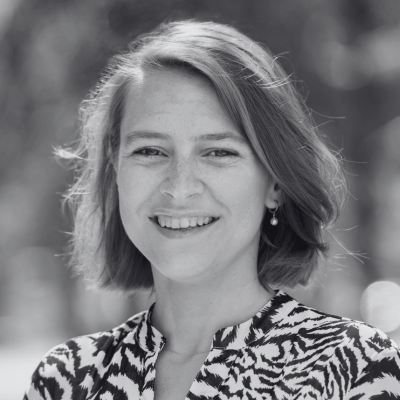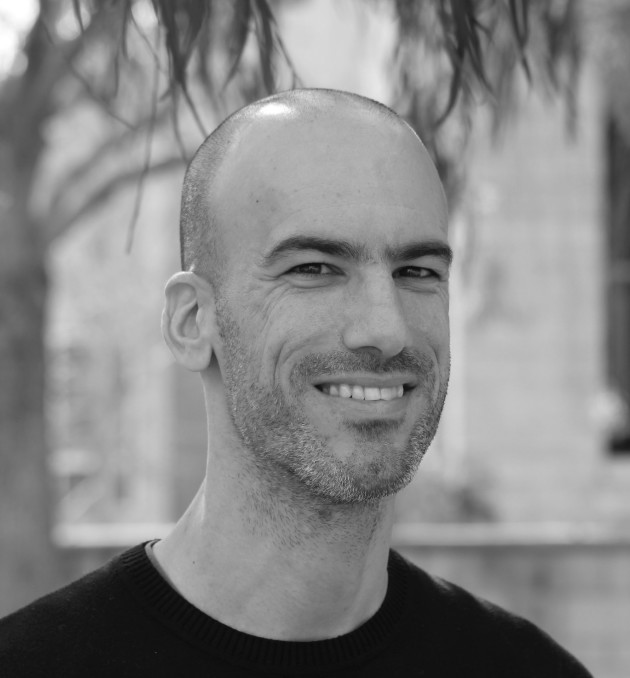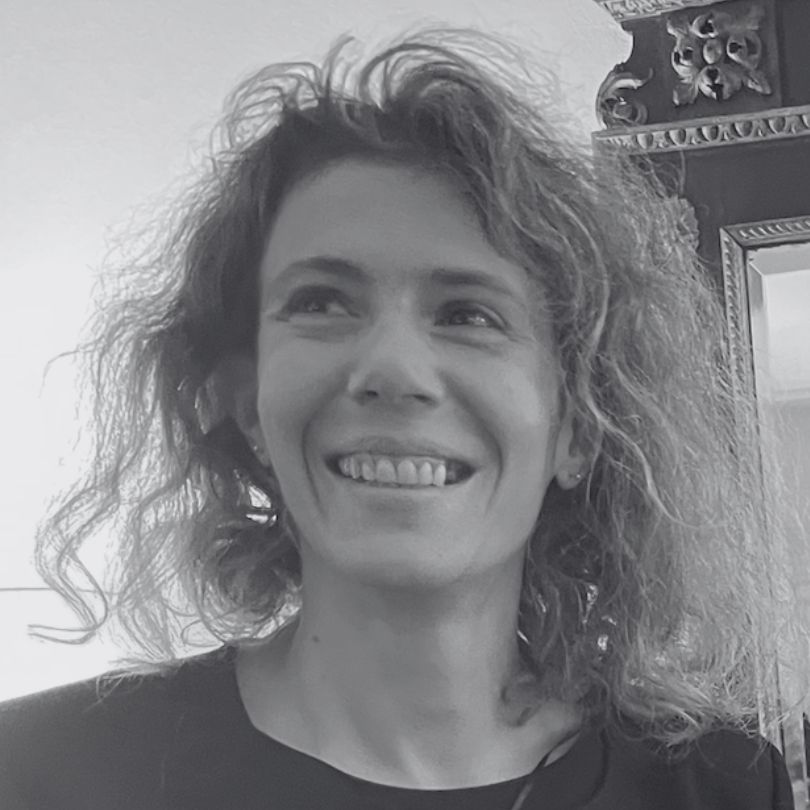 Professor William Wisden, FRS
Professor William Wisden, FRS
Centre Director
Professor Wisden, MA, PhD, FMedSci, FRS, is Chair in Molecular Neuroscience in the Department of Life Sciences, Imperial College London, and the Director of the UK DRI Centre at Imperial. He is interested in three major problems in neuroscience:
- Why do we sleep and how is sleep initiated and maintained?
- What are the molecular and neuronal mechanisms underlying the loss of consciousness induced by general anaesthetics?
- What is the molecular basis of neuropathic pain?
He uses a wide variety of techniques and model systems to investigate these problems, including confocal microscopy, real-time PCR, proteomic analysis with mass spectrometry and structural biology.

 Dr Samuel Barnes
Dr Samuel Barnes
UK DRI Group Leader, Deputy Centre Director
The role of micro-circuit homeostasis in ageing and early-stage AD
Dr Barnes investigates why the aged brain is vulnerable to neurodegeneration in order to identify strategies that may alleviate this susceptibility.
His group focuses on homeostatic neural plasticity processes which are thought to be critical for healthy network function. The group uses a combination of voltage and calcium imaging, bioelectronics and electrophysiology to determine the efficiency and mechanisms of homeostatic plasticity processes in both the aged brain and the early stages of neurodegeneration.

 Dr Marco Brancaccio
Dr Marco Brancaccio
UK DRI Group Leader
Mechanisms of circadian dysfunction in Alzheimer’s disease
Dr Brancaccio investigates the molecular, cellular and circuit mechanisms underlying circadian function in health and disease.
His group focuses on understanding the mechanisms driving circadian misregulation in the early stages of dementia. His laboratory uses a wide range of techniques including live imaging and in vivo gene therapy to study and harness circadian brain function with the aim of delaying disease onset and progression.

 Dr Eugene Duff
Dr Eugene Duff
UK DRI Centre Lead for Informatics
Advanced Research Fellow
Department of Brain Science, Imperial College London
Eugene Duff’s research focuses on analytic and computational challenges in resolving spatial and temporal properties of brain structure and function. He has worked extensively in neuroimaging, and at the UK DRI at Imperial College focuses on a variety of single cell and spatial transcriptomic techniques that can reveal genomic signatures of the emergence of dementia. His interests include inference on complex neurobiological datasets, multi-study integration and the development of reproducible analysis pipelines. He works closely with Professor Paul Matthews, Dr Nathan Skene and other researchers in the centre.

 Professor Paul Elliott, FRS
Professor Paul Elliott, FRS
UK DRI Group Leader
Professor Paul Elliott, MBBS, PhD, FMedSci, FRS, trained in clinical medicine and epidemiology as a Wellcome Trust Clinical Fellow at St Mary's Hospital London and the London School of Hygiene and Tropical Medicine. He studied for his PhD in Epidemiology on the INTERSALT Study under the mentorship of Professor Geoffrey Rose. He remained at the London School working as a lecturer, and subsequently as senior lecturer and reader in epidemiology before being appointed as Head of the Environmental Epidemiology Unit at LSHTM 1990. In 1995 he was appointed to the Chair in Epidemiology and Public Health Medicine at Imperial College London.

 Dr Nir Grossman
Dr Nir Grossman
UK DRI Group Leader
Novel bioelectronics stimulation technologies
Dr Grossman develops neuromodulatory interventions for brain disorders by pioneering new tools and principles to impact the disease pathology via direct modulation of the underlying aberrant neural activity.
His research drives innovation through rigorous scientific exploration of common biophysical principles and rules underpinning the neural processing of electromagnetic stimulation, using natural bridges between advanced computational neuroscience and cutting-edge experiments, ranging from a single neuron cell to human behaviour.

 Dr Johanna Jackson
Dr Johanna Jackson
Alzheimer's Society Dementia Research Leader, UK DRI Emerging Leader
Department of Brain Sciences, Imperial College London
Identifying vulnerable synaptic components for synaptotherapeutic intervention
Dr Jackson’s focus is on identifying vulnerable synaptic components and investigating molecular mechanisms underpinning their vulnerability as well as examining the link to AD pathology and neuronal vulnerability. This enables the Jackson group to determine the impact of repurposed and novel synaptotherapeutics. Lastly, the group validates synaptic biomarker targets to track synapse loss and determine synaptotherapeutic drug efficacy.
The Jackson group takes a multi-‘omic and imaging approach to provide a mechanistic insight into the vulnerability of synaptic components in Alzheimer’s Disease. Their work uses a number of methodologies such as synaptic proteomics and transcriptomics, mass synaptometry and advanced imaging techniques such two-photon imaging and imaging mass cytometry.
In 2023, Dr Jackson was awarded a prestigious Alzheimer’s Society Dementia Leader Fellowship and the inaugural Carol Jennings Fellowship for her group to investigate vulnerable synaptic components to achieve her vision of therapeutically targeting the synapse in AD.

 Dr Anna Mallach
Dr Anna Mallach
Edmond and Lily Safra Fellow
UK DRI Emerging Leader
Investigating microglial interactions driving neurodegeneration in Parkinson's Disease
Dr Mallach investigates the interplay between microglia and neurons in the brain that degenerate in Parkinson’s disease.
Her group focuses on understanding the effect of different microglial functions on the health and death of dopaminergic neurons in Parkinson’s disease. Her laboratory uses a combination of wet-lab techniques, such as induced pluripotent stem cells, and bioinformatic analyses to resolve whether the loss of supportive microglia functions contribute to the neurodegenerative cascade observed in Parkinson’s disease.

 Dr Sarah Marzi
Dr Sarah Marzi
UK DRI Group Leader (King's College London) and Honorary Senior Lecturer (Imperial College London)
Epigenetic regulation of environmental and genetic risk in neurodegenerative disease
Sarah Marzi investigates how genetic and environmental risk factors regulate the epigenome to influence neurodegenerative disease. Her group focuses on cell-type specific regulatory consequences of environmental risk factors for Alzheimer’s and Parkinson’s disease and how these interact with genetic risk variants. The Marzi lab combines experimental genomic and epigenomic techniques with innovative statistical and computational analyses to understand gene regulatory mechanisms contributing to the earliest stages of disease.
Dr Marzi completed her PhD in complex disease epigenetics with Jonathan Mill at King’s College London and worked as a postdoc with Vardhman Rakyan at Queen Mary University of London. She joined the UK Dementia Research Institute at Imperial College London at the end of 2019 as an Edmond and Lily Safra Research Fellow to establish her independent research group, and started as a Group Leader at Kings College London in September 2023.

 Professor Paul Matthews
Professor Paul Matthews
UK DRI Group Leader
Exploring glial-neuronal interactions at the transition from brain vulnerability to pathology
Paul M. Matthews, OBE, DPhil, FRCP, FMedSci is an Edmond and Lily Safra Professor of Translational Neuroscience and Therapeutics, Imperial College London. Since 2009, he has been on the Steering Committee of UK Biobank and chairs the Imaging Enhancement Working Group, which has supported UK Biobank for creating the world’s largest population research imaging resource.
Previously, Matthews spent almost nine years as a Vice President in GlaxoSmithKline, holding a variety of senior portfolios, including those for the GSK Clinical Imaging Centre and the later Global Imaging Group. He jointly founded and was the first Director of Oxford FMRIB Centre (1995-2005). He is a Fellow by Special Election of St Edmund Hall, Oxford, a Fellow of the Academy of Medical Sciences, and a Fellow of the Academea Europea. He was awarded an OBE in 2008 for services to Neuroscience.
Paul became Director of the Rosalind Franklin Institute on the Harwell Science and Innovation Campus, which was founded as a Joint Venture between Imperial College, nine other UK universities, the UKRI Engineering and Physical Sciences Council and the Science and Technology Facilities Council. His research addresses mechanisms of failure of glial-neuronal homeostatic mechanisms and selective neuronal vulnerability in the early stages of Alzheimer’s disease and in progressive multiple sclerosis. He always is pleased to hear from interested prospective students, scientists or others who share a common interest in helping science improve the lives of people with dementia and their families.

 Dr Sophie Morse
Dr Sophie Morse
UKRI Future Leader Fellow and UK DRI Emerging Leader
Dr Sophie Morse investigates how focused ultrasound can be engineered to modulate immune cell activity. Her group focuses on developing non-invasive and targeted technologies to modulate glial activity with the aim to treat, prevent or delay the onset of neurodegenerative diseases and age-related cognitive decline. The Morse lab seeks to uncover the level of control this ultrasound technology can achieve, the mechanisms behind this modulation and how this technology is best applied to achieve therapeutic benefits as we age.
Dr Morse completed her PhD in Biomedical Engineering developing a non-invasive focused ultrasound technology to deliver drugs to the brain efficiently and safely. She was then awarded an EPSRC doctoral prize fellowship and joined the UK Dementia Research Institute as an Imperial College Research Fellow.

 Dr Alexi Nott
Dr Alexi Nott
UK DRI Group Leader
The role of genetic variation in brain ageing and disease
Alexi completed his PhD at University College London investigating the function of epigenetic regulators during brain development. During his postdoctoral fellowship at MIT he investigated the role of epigenetics in postnatal development and autism-related behaviors. His research at the University of California, San Diego examined epigenetic mechanisms underlying age-related brain disorders and he identified microglia as associated with the genetic risk of Alzheimer’s disease.
His research utilizes nuclei isolation methods and genome-wide sequencing approaches to examine the epigenome of brain cell types using patient-derived archived tissue. Functional interrogation of disease-associated gene regulatory regions will employ CRISPR DNA-editing technology of pluripotent stem cells derived into brain cell types. Using a combination of these approaches, Alexi will examine the epigenome of the human brain to understand how genetic variation contributes to age-related brain disorders.

 Dr Cynthia Sandor
Dr Cynthia Sandor
UK DRI Group Leader
Digital Biomarkers in Parkinson's Disease
Dr Sandor is an Edmond J. Safra Lecturer in Parkinson’s Disease. She also holds a UKRI Future Leader Fellowship.
Dr Sandor's research interest is in identifying accessible and early biomarkers, to aid in the detection of individuals living with Parkinson's within the general population. Working with various data types, including omics, digital, and neuroimaging, as well as multiple clinical and biobank datasets, her team develops statistical and machine learning approaches to predict who is at risk for Parkinson's disease. Her research aims to facilitate earlier intervention and deepen understanding of the molecular mechanisms underlying Parkinson's disease, potentially paving the way for the development of neuroprotective treatments.

 Dr Nathan Skene
Dr Nathan Skene
UK DRI Group Leader
Seeking drug targets for neurodegenerative disease with genome-wide directional evidence
Nathan Skene completed his undergraduate degree in Artificial Intelligence and Cybernetics at the University of Reading, followed by an MPhil in Computational Biology at Cambridge. His PhD was at the Sanger Institute working with Professor Seth Grant on the Genes2Cognition programme. During his PhD he worked on analysing the transcriptomic changes seen in mice carrying a wide range of synaptic mutations.
He did his postdoc in the lab of Jens Hjerling-Leffler at the Karolinska Institutet, where he developed a series of method which made it possible to identify cell types underlying complex diseases using GWAS data. Skene joined Imperial College London in 2019 as an Edmond and Lily Safra Research Fellow. His interests lie in using human genetics to gain insight into the neurobiology of brain disorders and cognitive traits.

Operations team
Management team
Dr Jennifer Podesta
/prod01/channel_3/media/images/people-list/Jennifer-Podesta.png)
Dr Jennifer Podesta
Head of Operations and Planning
Dr Diana Benitez
/prod01/channel_3/media/images/people-list/mhfa-diana-bw.png)
Dr Diana Benitez
Project Co-ordinator
Lauren Troy
/prod01/channel_3/media/images/people-list/lauren-bw-square-400X400.png)
Lauren Troy
Project Officer
Josh Beale
/prod01/channel_3/media/images/people-list/mhfa-josh-square-bw.png)
Josh Beale
Project Officer
Megan Winterbotham
/prod01/channel_3/media/images/people-list/megan-w-first-aider.png)
Megan Winterbotham
Laboratory Manager
Eduardo Lopez Tobar
/prod01/channel_3/media/images/people-list/eduardo-uk-dri-bw.png)
Eduardo Lopez Tobar
Laboratory Technician
Dr Nazanin Doostdar
/prod01/channel_3/media/images/people-list/N-Doostdar2.jpg)
Dr Nazanin Doostdar
Laboratory Manager (Barnes Lab)
Siobhan Dillon
/prod01/channel_3/media/migration/research-groups/IMG_2875--tojpeg_1581024713462_x4.jpg)
Siobhan Dillon
Personal Assistant to Professor Paul Matthews
Qualified First Aider
/prod01/channel_3/media/images/non-standard-dimensions/First-Aid.png)
Qualified First Aider
Mental Health First Aider
/prod01/channel_3/media/images/non-standard-dimensions/MHFA.png)
Mental Health First Aider
Mentoring
/prod01/channel_3/media/images/non-standard-dimensions/Mentoring.png)
Mentoring
LGBT Allies Network
/prod01/channel_3/media/images/non-standard-dimensions/LGBT-Allies.png)
LGBT Allies Network
Multi-'omics Atlas Project (MAP) team
Research staff
Research staff
Dr Julieta Acosta
/prod01/channel_3/media/images/people-list/julieta-acosta-bw-headshot.png)
Dr Julieta Acosta
Research Associate in Circadian Biology
Dr Emily Adair
/prod01/channel_3/media/images/people-list/Emily-BW-400X400.png)
Dr Emily Adair
Research Associate
Dr Berta Anuncibay Soto
/prod01/channel_3/media/images/people-list/berta-anuncibay.png)
Dr Berta Anuncibay Soto
Research Associate in Sleep & Neurodegeneration
Baptiste Avot
/prod01/channel_3/media/images/people-list/baptiste-bw-2-400X400.png)
Baptiste Avot
Bioinformaticist
Dr Aina Badia Soteras
/prod01/channel_3/media/images/people-list/A-Baderas-300X300.jpg)
Dr Aina Badia Soteras
Research Associate
Marirena Bafaloukou
/prod01/channel_3/media/images/people-list/Marirena-UK-DRI-Headshot-BW.png)
Marirena Bafaloukou
Research Assistant/PhD Student
Dr Baptiste Brulé
/prod01/channel_3/media/images/people-list/baptiste-b-square-bw.png)
Dr Baptiste Brulé
Research Associate
Dr Nicole Byron
/prod01/channel_3/media/images/people-list/Nicole-Byron-BW.png)
Dr Nicole Byron
Research Associate in Circadian Biology
Dr Maria Sabina Cerullo
/prod01/channel_3/media/images/people-list/M-Cerullo-400X400.jpg)
Dr Maria Sabina Cerullo
Research Associate
Dr Francesca Chaloner
/prod01/channel_3/media/images/people-list/fran-bw.png)
Dr Francesca Chaloner
Research Associate
Rishideep Chatterjee
/prod01/channel_3/media/images/people-list/rishideep-bw.png)
Rishideep Chatterjee
Research Assistant
Vicky Chau
/prod01/channel_3/media/images/people-list/Vicky-Chau-400X400.jpg)
Vicky Chau
Research Assistant/PhD Student
Christopher Crampton
/prod01/channel_3/media/images/people-list/Chris-Crampton-BW.png)
Christopher Crampton
Research Assistant
Hiru Dash
/prod01/channel_3/media/images/people-list/hiru-bw.png)
Hiru Dash
Research Assistant
Dr Nazanin Doostdar
/prod01/channel_3/media/migration/research-groups/Nazanin-Doostdar--tojpeg_1551696222125_x4.jpg)
Dr Nazanin Doostdar
Research Associate and Laboratory Manager in Homeostatic Neural Plasticity
Dr Nurun Fancy
/prod01/channel_3/media/images/people-list/nurun-bw-square.png)
Dr Nurun Fancy
Edmond and Lily Safra Research Fellow
Marcio Guiomar de Oliveira
/prod01/channel_3/media/images/people-list/marcio-oliveira-bw.png)
Marcio Guiomar de Oliveira
Research Technician in Neurogenomics
Dr Barak Hadad
/prod01/channel_3/media/images/people-list/barak-hadad-bw.png)
Dr Barak Hadad
Research Associate
Anastasia Ilina
/prod01/channel_3/media/images/people-list/A-Ilina-UK-DRI-Headshot-BW.png)
Anastasia Ilina
Research Assistant/PhD Student
Dr Nataliia Katolikova
/prod01/channel_3/media/images/people-list/nataliia-dp.png)
Dr Nataliia Katolikova
Research Associate
Dr Michael Lattke
/prod01/channel_3/media/images/people-list/Michael-Lattke-BW.png)
Dr Michael Lattke
Research Associate
Jade Leung
/prod01/channel_3/media/images/people-list/Jade-Leung-400X400.jpg)
Jade Leung
Research Assistant/PhD Student
Dr Junheng Li
/prod01/channel_3/media/images/people-list/junheng-bw-square.png)
Dr Junheng Li
Research Associate
Dr Michael Morten
/prod01/channel_3/media/migration/research-groups/win-20200804-16-24-49-pro_1596715835829_x4.jpg)
Dr Michael Morten
Research Associate investigating cell stress with super-resolution imaging
Dr Elina Nagaeva
/prod01/channel_3/media/images/people-list/ElinaNagaeva_ProfilePic_BW.jpg)
Dr Elina Nagaeva
Research Associate
Marianna Papageorgopoulou
/prod01/channel_3/media/images/people-list/mhfa-marianna-bw-2025.png)
Marianna Papageorgopoulou
Research Assistant/PhD student
Dr Kjara Pilch
/prod01/channel_3/media/images/people-list/K-Pilch_300X400-400X400.jpg)
Dr Kjara Pilch
BBSRC Discovery Fellow
Dr Carola Radulescu
/prod01/channel_3/media/migration/research-groups/Carola-Radulescu-photo--tojpeg_1547468986989_x4.jpg)
Dr Carola Radulescu
Edmond and Lily Safra Research Fellow
Michael Thomas
/prod01/channel_3/media/images/people-list/300400Michael_Face_Upscaled-400X400.jpg)
Michael Thomas
Bioinformaticist
Xingjian Wang
/prod01/channel_3/media/images/people-list/xingjian-wang-bw.png)
Xingjian Wang
Research Assistant
Dr Yukyee Wu
/prod01/channel_3/media/images/people-list/yukyee-bw.png)
Dr Yukyee Wu
Research Associate – Computational Epigenomics in Neurodegenerative Diseases
Dr Kimberly Young
/prod01/channel_3/media/images/people-list/kimberly-young-bw.png)
Dr Kimberly Young
Research Associate
PhD Students
PhD Students
Bshaier Allehyany
/prod01/channel_3/media/images/people-list/dri-logo-3X4.png)
Bshaier Allehyany
Supervisor: Dr Johanna Jackson
Aydan Askarova
/prod01/channel_3/media/images/people-list/A-Askarova-400X400.jpg)
Aydan Askarova
Supervisor: Dr Alexi Nott
Ida Bomann
/prod01/channel_3/media/images/people-list/ida-dp-black-and-white-400X400.png)
Ida Bomann
Supervisor: Dr Raffaella Nativio
Sam Boulger
/prod01/channel_3/media/images/people-list/sam-boulger-bw.png)
Sam Boulger
Supervisors: Professor Paul Matthews, Dr Eugene Duff, Dr Javier Alegre Abarrategui
Matilda Burridge
/prod01/channel_3/media/images/people-list/M-Burridge-400X400.jpg)
Matilda Burridge
Supervisor: Dr Yu Ye
Toby Clark
/prod01/channel_3/media/images/people-list/Toby-Clark-BW.png)
Toby Clark
Supervisor: Dr Nathan Skene
Thomas Deegan
/prod01/channel_3/media/images/people-list/uk-dri-tom-deegan-bw.png)
Thomas Deegan
Supervisor: Dr Nir Grossman, Professor Timothy Constandinou, Dr Christos Papavassiliou
Vanessa Drevenakova
/prod01/channel_3/media/images/people-list/vanessa-drevenakova-bw.png)
Vanessa Drevenakova
Supervisors: Dr Sophie Morse, Professor Jesus Gil
Tatiana Georgiades
/prod01/channel_3/media/images/people-list/tatiana-georgiades-bw-patil-bw.png)
Tatiana Georgiades
Supervisors: Dr Johanna Jackson, Dr Samuel Barnes
Katarina Gregorovicsova
/prod01/channel_3/media/images/people-list/kata-bw-website-400X400.png)
Katarina Gregorovicsova
Supervisor: Dr Yu Ye
Sarina Grewal
/prod01/channel_3/media/images/people-list/sarina-grewal.png)
Sarina Grewal
Supervisor: Dr Sophie Morse
Isidora Gocmanac
/prod01/channel_3/media/images/people-list/isidora-uk-dri-bw.png)
Isidora Gocmanac
Supervisor: Dr Nathan Skene
Dr Charlie McKechnie
/prod01/channel_3/media/images/people-list/uk-dri-charlie-bw.png)
Dr Charlie McKechnie
Clinical Research Fellow
Supervisor: Professor Paul Matthews
Sabino Mendez Pastor
/prod01/channel_3/media/images/people-list/Sabino-400X400.jpg)
Sabino Mendez Pastor
Supervisors: Professor Paul Matthews, Dr Raffaella Nativio, Professor David Owen
Ashlesha Patil
/prod01/channel_3/media/images/people-list/ashlesha-patil-bw.png)
Ashlesha Patil
Supervisors: Dr Nurun Fancy, Dr Paul Matthews, Dr Raffaella Nativio, Dr Diego Gomez-Nicola
Caroline Rew
/prod01/channel_3/media/images/people-list/caroline-rew-bw.png)
Caroline Rew
Supervisors: Dr Nir Grossman, Professor Mauricio Barahona, Dr Christopher Butler
Isabella Russell-Smith
/prod01/channel_3/media/images/people-list/Isabella-Russell-Smith-BW.png)
Isabella Russell-Smith
Supervisor: Dr Samuel Barnes
Janna van Dalen
/prod01/channel_3/media/images/people-list/uk-dri-janna-bw.png)
Janna van Dalen
Supervisor: Dr Alexi Nott
Dr Simon Williamson
/prod01/channel_3/media/images/people-list/uk-dri-simon-williamson-bw.png)
Dr Simon Williamson
Clinical PhD Fellow
Supervisor: Nir Grossman
Our Collaborators
Co-Investigators
-
Professor Abbas Dehghan
/prod01/channel_3/media/migration/research-groups/Abbas--tojpeg_1568729556637_x4.jpg)
Research
Linking genetic, epidemiology and metabolic phenotyping in dementia in the context of ageing, environment and lifestyle
-
Professor Nick Franks
/prod01/channel_3/media/migration/research-groups/fra00077-nicholas-franks_1620391731099_x4.jpg)
Research
How anaesthetics act at the level of neuronal networks
How anaesthetics act at the level of neuronal networks and the possibility that the sedative and hypnotic actions of general anaesthetics may be mediated through the same neuronal pathways that control natural sleep.
-
Dr Raffaella Nativio
/prod01/channel_3/media/images/people-list/raffaella-nativio-bw.jpg)
Research
Epigenetic pathways in healthy ageing and neurodegeneration
Dr Nativio's research investigates epigenetic mechanisms that confer stress resistance to age-related neurodegeneration.
-
Professor David Owen
/prod01/channel_3/media/migration/research-groups/dave6_1620390920578_x4.jpg)
Research
Investigating the role of microglia in brain disease
Identifying drugs to modulate their responses and therefore slow the progression of these diseases such as Alzheimer's and Parkinson's.
-
Professor Ioanna Tzoulaki
/prod01/channel_3/media/images/people-list/I-Tzoulaki.jpg)
Research
Using population health data to understand causes of dementia and develop better risk stratification strategies
Joanna works on molecular epidemiology approaches to uncover dementia pathways and is interested in exploring disease multimorbidity to identify common mechanisms between different diseases and drug repurposing opportunities. Through electronic health record research her team explores longitudinal trajectories of dementia pathways for prognostic research. -
Dr Yu Ye
/prod01/channel_3/media/images/people-list/yu-ye-bw.png)
Research
Protein homeostasis in cell stress and inflammation
The Ye Lab studies the interplay between the ubiquitin-proteasome system and amyloid proteins in biological systems. Using advanced fluorescence imaging techniques, the lab seeks to uncover the cellular mechanisms of restricting or reversing protein aggregation, and how malfunction of this system leads to neurodegenerative disorders.
Alumni
Alumni
Ketevan Alania
/prod01/channel_3/media/images/people-list/ketevan-alania.png)
Ketevan Alania
Supervisor: Dr Nir Grossman
Dana Aljarrah
/prod01/channel_3/media/images/people-list/Dana-Headshot-BW.png)
Dana Aljarrah
Research Technician
Julia Borella
/prod01/channel_3/media/images/people-list/J_Borella_300X400_2-400X400.jpg)
Julia Borella
Research Assistant
Dr Elizabeth Brockman
/prod01/channel_3/media/images/people-list/E-Brockman-400X400.jpg)
Dr Elizabeth Brockman
Research Associate in neurovascular phenotypes in neurodegenerative disease
Dr Alessia Caramello
/prod01/channel_3/media/migration/research-groups/screenshot-2021-04-23-at-145026_1619186077793_x4.jpg)
Dr Alessia Caramello
Research Associate – neuronal vulnerability in neurodegenerative diseases
Dorcas Cheung
/prod01/channel_3/media/images/people-list/Screenshot-2022-09-26-at-10.28.30.jpg)
Dorcas Cheung
Research Assistant
Patrycja Dzialecka
/prod01/channel_3/media/migration/research-groups/pat_1593101802167_x4.jpg)
Patrycja Dzialecka
Supervisor: Dr Nir Grossman
Dr Leire Melgosa Ecenarro
/prod01/channel_3/media/images/people-list/leire-bw-square.png)
Dr Leire Melgosa Ecenarro
Research Associate
Marco Ferrari
/prod01/channel_3/media/images/people-list/uk-dri-marco-ferrari-bw.png)
Marco Ferrari
Supervisor: Dr Marco Brancaccio
Sandra Diaz Clavero
/prod01/channel_3/media/images/people-list/Screenshot-2022-09-20-at-13.39.08.jpg)
Sandra Diaz Clavero
Research Technician - circadian dysfunction in neurodegenerative diseases
Hannah Gowland
/prod01/channel_3/media/migration/research-groups/Hannah-Gowland--tojpeg_1575897585297_x4.jpg)
Hannah Gowland
Project Officer
Jia Du
/prod01/channel_3/media/images/people-list/jia-du-bw.png)
Jia Du
Research Technician
Parisa Mottaghi
/prod01/channel_3/media/migration/research-groups/Mottaghi,-Parisa--tojpeg_1534751973688_x4.jpg)
Parisa Mottaghi
PhD Student
Dr Joy Ismail
/prod01/channel_3/media/images/people-list/Joy-400X400.jpg)
Dr Joy Ismail
Research Associate
Dr Maria Garcia Garrido
/prod01/channel_3/media/migration/research-groups/pdfscreenshot-2022-01-12-at-134332_1641995195667_x4.jpg)
Dr Maria Garcia Garrido
Research Associate - Translational Systems Neuroscience
Alan Murphy
/prod01/channel_3/media/migration/research-groups/linkedinphoto_1611012710490_x4.jpg)
Alan Murphy
Supervisor: Dr Nathan Skene
Katarina Gregorovicsova
/prod01/channel_3/media/images/people-list/kata-bw-website.png)
Katarina Gregorovicsova
Research Technician - Neuroepigenomics
Natalie Ness
/prod01/channel_3/media/images/people-list/natalie-uk-dri-bw.png)
Natalie Ness
Supervisor: Dr Marco Brancaccio
Jean Rintoul
/prod01/channel_3/media/images/people-list/jean-rintoul-uk-dri-bw.png)
Jean Rintoul
Supervisor: Dr Nir Grossman
Will Lunt
/prod01/channel_3/media/images/people-list/W-Lunt_300X400.jpg)
Will Lunt
Research Technician
Dr David Miao
/prod01/channel_3/media/migration/research-groups/dmiao_1593102100291_x4.jpg)
Dr David Miao
Research Associate
Brian Schilder
/prod01/channel_3/media/migration/research-groups/screenshot-2021-01-26-at-101513_1611656559483_x4.jpg)
Brian Schilder
Supervisor: Dr Nathan Skene
Dr Combiz Khozoie
/prod01/channel_3/media/migration/research-groups/Combiz-Khozoie--tojpeg_1583962892675_x4.jpg)
Dr Combiz Khozoie
Senior Bioinformaticist
Joe Airey
/prod01/channel_3/media/migration/research-groups/jshep_1593105680103_x4.jpg)
Joe Airey
Supervisor: Dr Sam Barnes
Dr Adesola Bello
/prod01/channel_3/media/migration/research-groups/Bello,-Adesola--tojpeg_1534500519099_x4.jpg)
Dr Adesola Bello
Research Assistant specialising in targeted mass spectrometry and metagenomics
Dr Antonio Berlanga
/prod01/channel_3/media/migration/research-groups/Antonio-Berlanga--tojpeg_1551092371120_x4.jpg)
Dr Antonio Berlanga
MRC Intermediate Research Fellow in Computational Biology
Dr Renaud Bussiere
/prod01/channel_3/media/migration/research-groups/Renaud--tojpeg_1561135961898_x4.jpg)
Dr Renaud Bussiere
Research Associate in Circadian Biology
Daniel Clode
/prod01/channel_3/media/migration/research-groups/clode_1593078367313_x4.jpg)
Daniel Clode
Research Technician - iPSC specialist
Dr Brenan Durainayagam
/prod01/channel_3/media/migration/research-groups/Brenan--tojpeg_1568735111413_x4.jpg)
Dr Brenan Durainayagam
Research Associate in Metabolomics
Dr Marieke Hoekstra
/prod01/channel_3/media/migration/research-groups/Marieke-Hoekstra--tojpeg_1568718266213_x4.jpg)
Dr Marieke Hoekstra
Research Associate in Sleep/Circadian Distrubance
Dr Di Hu
/prod01/channel_3/media/migration/research-groups/di-hu-picture_1603471696862_x4.jpg)
Dr Di Hu
Research Associate
Dr Jian Huang
/prod01/channel_3/media/migration/research-groups/Jian-Huang--tojpeg_1550763692376_x4.jpg)
Dr Jian Huang
Research Associate in Epidemiology
Dr Jose Torres Pérez
/prod01/channel_3/media/migration/research-groups/screenshot-2021-05-04-at-144402_1620207563263_x4.jpg)
Dr Jose Torres Pérez
Research Associate
Dr Manuja Kaluarachchi
/prod01/channel_3/media/migration/research-groups/Manuja_IMAGE--tojpeg_1568797062245_x4.jpg)
Dr Manuja Kaluarachchi
Project Manager in Metabolomics
Dr Ibrahim Karaman
/prod01/channel_3/media/migration/research-groups/Karaman,-Ibrahim--tojpeg_1528270266706_x4.jpg)
Dr Ibrahim Karaman
Research Associate in Chemometrics/Metabolomics
Dr Charlotte Luff
/prod01/channel_3/media/migration/research-groups/cluff_1593101443317_x4.jpg)
Dr Charlotte Luff
Honorary Research Associate
Aisling McGarry
/prod01/channel_3/media/migration/research-groups/Aisling-BW--tojpeg_1578484777244_x4.jpg)
Aisling McGarry
Research Technician
Dr Emma Mee Hayes
/prod01/channel_3/media/migration/research-groups/dri_1611013154485_x4.jpg)
Dr Emma Mee Hayes
Research Associate - Stem Cell Biology
Callum Muirhead
/prod01/channel_3/media/migration/research-groups/Callum-BW--tojpeg_1571414818077_x4.jpg)
Callum Muirhead
Research Technician - Hyperion Imaging System
Dr Areesha Nazeer
/prod01/channel_3/media/migration/research-groups/screenshot-2021-04-23-at-144838_1619185894799_x4.jpg)
Dr Areesha Nazeer
Research Associate
Jiabin Tang
/prod01/channel_3/media/migration/research-groups/jtang_1593102315449_x4.jpg)
Jiabin Tang
Supervisor: Prof Paul Matthews
Dr Ashwin Venkataraman
/prod01/channel_3/media/migration/research-groups/Ashwin--tojpeg_1568719640092_x4.jpg)
Dr Ashwin Venkataraman
Clinical Research Fellow
Dr Nanet Willumsen
/prod01/channel_3/media/migration/research-groups/Nanet--tojpeg_1582895770792_x4.jpg)
Dr Nanet Willumsen
Senior Research Technician - MAP
Katie Wiltshire
/prod01/channel_3/media/migration/research-groups/screenshot-2021-02-02-at-133303_1612272973283_x4.jpg)
Katie Wiltshire
Supervisor: Professor Paul Matthews
Dr Anne Wolfes
/prod01/channel_3/media/migration/research-groups/Anne-Wolfes--tojpeg_1591874763591_x4.jpg)
Dr Anne Wolfes
Research Associate in Circadian Biology
Riad Yagoubi
/prod01/channel_3/media/migration/research-groups/ryagoubi_1593105864803_x4.jpg)
Riad Yagoubi
PhD student - Matthews lab
Dr Nawal Zabouri
/prod01/channel_3/media/migration/research-groups/dri_1611013535676_x4.jpg)
Dr Nawal Zabouri
Neural Circuit Plasticity Lab Manager
Qi Zhong
/prod01/channel_3/media/migration/research-groups/screenshot-2021-01-26-at-100522_1611655870179_x4.jpg)
Qi Zhong
PhD student - Griffin/Brancaccio lab
Coskun Guclu
/prod01/channel_3/media/migration/research-groups/screenshot-2021-03-02-at-131043_1614690748932_x4.jpg)
Coskun Guclu
UK DRI Project Officer
Dr Alexandra Phillips
/prod01/channel_3/media/migration/research-groups/screenshot-2021-03-02-at-131133_1614690827365_x4.jpg)
Dr Alexandra Phillips
Research Associate- Matthews Lab
Dr Amy Smith
/prod01/channel_3/media/migration/research-groups/screenshot-2021-02-26-at-153726_1614690260250_x4.jpg)
Dr Amy Smith
Research Associate- Matthews Lab
Dr Mahdi Maradi Marjaneh
/prod01/channel_3/media/migration/research-groups/screenshot-2021-02-26-at-153747_1614690943549_x4.jpg)
Dr Mahdi Maradi Marjaneh
Senior Bioinformaticist- Matthews Lab
Dr Maksym Kopanitsa
/prod01/channel_3/media/migration/research-groups/screenshot-2021-03-02-at-125355_1614690472709_x4.jpg)
Dr Maksym Kopanitsa
In Vivo Lead UK DRI
Evelyn Martin
/prod01/channel_3/media/migration/research-groups/evelyn-martin_1626339940521_x4.jpg)
Evelyn Martin
Research Assistant
Karen Davey
/prod01/channel_3/media/migration/research-groups/screenshot-2021-02-26-at-153734_1614690382134_x4.jpg)
Karen Davey
Senior Research Assistant- MAP
Lucy Bedwell
/prod01/channel_3/media/migration/research-groups/thumbnail-pxl-20210717-195031278-2_1635848592042_x4.jpg)
Lucy Bedwell
Research Technician - Nott lab
Roxy Zhang
/prod01/channel_3/media/migration/research-groups/roxy-zhang-bw_1601562096220_x4.jpg)
Roxy Zhang
PhD student: Skene lab
Salman Fawad
/prod01/channel_3/media/migration/research-groups/jpegscreenshot-2021-10-15-at-112936_1634294240501_x4.jpg)
Salman Fawad
MPhil student
Sasha Pokrovskaya
/prod01/channel_3/media/images/people-list/300400IMG_8227.jpg)
Sasha Pokrovskaya
Research Technician
Waleed Albihlal
/prod01/channel_3/media/images/people-list/dri-logo-3X4.png)
Waleed Albihlal
Research Associate
Enoch Newman
/prod01/channel_3/media/images/people-list/Picture-1.jpg)
Enoch Newman
Scientific Data Manager- MAP
Christina Petrides
/prod01/channel_3/media/images/people-list/300_400IMG_1155.jpg)
Christina Petrides
Visiting Research Assistant
Matteo Vinao-Carl
/prod01/channel_3/media/migration/research-groups/mat_1593105347903_x4.jpg)
Matteo Vinao-Carl
Supervisor: Dr Nir Grossman
Eléonore Schneegans
/prod01/channel_3/media/images/people-list/eleonore-schneegans-uk-dri-bw.png)
Eléonore Schneegans
Supervisor: Dr Nurun Fancy, Dr Johanna Jackson, Professor Paul M Matthews
Liina Sirvio
/prod01/channel_3/media/migration/research-groups/ls_1602150150006_x4.jpg)
Liina Sirvio
Supervisor: Dr Yu Ye
Teemu Ronkko
/prod01/channel_3/media/images/people-list/T-Ronkko.jpg)
Teemu Ronkko
Research Technician
Janis Transfeld
/prod01/channel_3/media/images/people-list/janis-uk-dri-bw.png)
Janis Transfeld
Supervisor: Dr Alexi Nott
Xiaowen Zhang
/prod01/channel_3/media/migration/research-groups/dri_1611014330252_x4.jpg)
Xiaowen Zhang
Supervisor: Professor Paul Matthews
Xiaoqi Zhu
/prod01/channel_3/media/migration/research-groups/Xiaoqi-website-photo--tojpeg_1582734369780_x4.jpg)
Xiaoqi Zhu
Supervisor: Dr Nir Grossman
Tom Roberts
/prod01/channel_3/media/images/people-list/tom-roberts.png)
Tom Roberts
Research Assistant
Dr Parshant Sharma
/prod01/channel_3/media/images/people-list/Parshant.jpg)
Dr Parshant Sharma
Research Associate
Jonathan Talbot-Martin
/prod01/channel_3/media/images/people-list/J-Talbot.jpg)
Jonathan Talbot-Martin
Bioinformaticist
Dr Philippa Wells
/prod01/channel_3/media/images/people-list/P-Wells.jpg)
Dr Philippa Wells
Research Associate - epigenetics of neurodegenerative disease
Yuqian Ye
/prod01/channel_3/media/images/people-list/300_400photo_BW.jpg)
Yuqian Ye
Research Technician
Levia Yee
/prod01/channel_3/media/images/people-list/levia-yee-bw.png)
Levia Yee
Research Technician in Molecular Neuropathology
Kevin Ziegler
/prod01/channel_3/media/images/people-list/kevin-uk-dri-bw.png)
Kevin Ziegler
Supervisor: Dr Alexi Nott

/prod01/channel_3/media/migration/research-groups/Mathieu-Nollet--tojpeg_1551265831627_x4.jpg)
/prod01/channel_3/media/migration/research-groups/Pinto,-Rui--tojpeg_1527845499101_x4.jpg)
/prod01/channel_3/media/images/people-list/Reuben-Yaa-400X400.png)
/prod01/channel_3/media/images/people-list/jia-qi-bw-400X400.png)
/prod01/channel_3/media/images/people-list/A-Golding-400X400.jpg)
/prod01/channel_3/media/images/people-list/martin-lombard-bw.png)
/prod01/channel_3/media/images/people-list/Jamie-Malcolm-BW.png)
/prod01/channel_3/media/images/people-list/manaal-shah-bw.png)
/prod01/channel_3/media/images/people-list/eline-stas-bw.png)
/prod01/channel_3/media/images/people-list/assaf-touboul-bw.png)
/prod01/channel_3/media/images/people-list/jan-wos-bw.png)
/prod01/channel_3/media/images/people-list/ceren-yalcin-bw.png)
/prod01/channel_3/media/images/people-list/kitty-profile-pic-bw-300X400.png)
/prod01/channel_3/media/migration/research-groups/screenshot-2021-01-26-at-101717_1611656310026_x4.jpg)
/prod01/channel_3/media/images/people-list/eddy-rhodes-uk-dri-bw.png)
